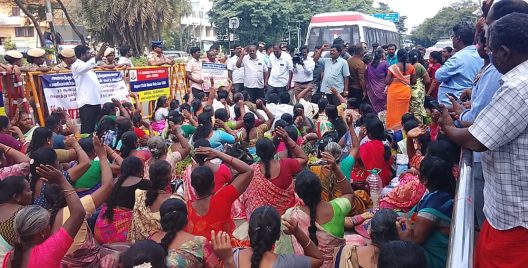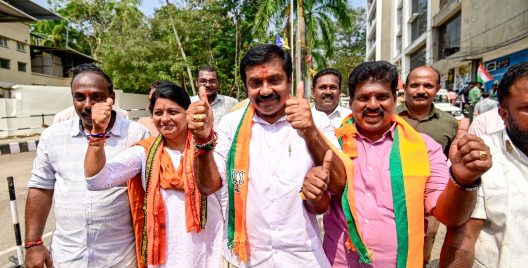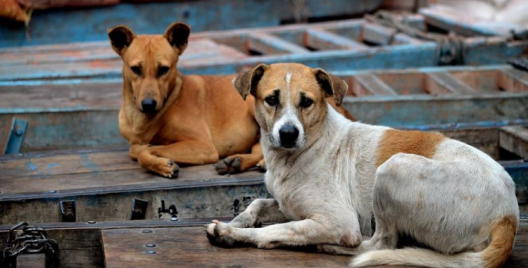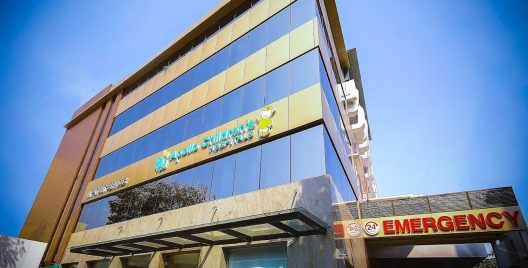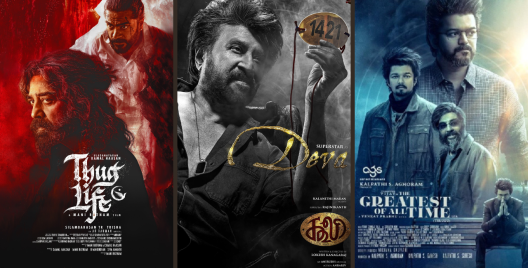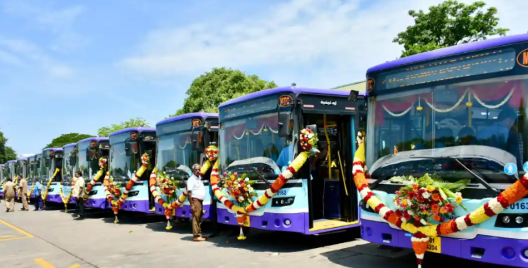The Supreme Court of India’s verdict regarding same-sex marriages caused a stir. Disappointment was rife. The queer community in India was waiting with bated breath to find out what the verdict holds and means for them. While the plea didn’t go through, the Supreme Court made it clear that it wasn’t upon them to change any laws and it would have to be taken to the Parliament.
The five-judge Constitution bench heard petitioners’ plea for granting the right to marriage to same-sex couples yesterday. There was a minute-by-minute update on what was being said and discussed at the hearing. Social media was abuzz with debates, opinions and reactions to what was being said inside. It’s a topic that has been in jeopardy for a while, especially since the passing of Section 377 in 2018.
In what was regarded as a historic move by the Supreme Court of India, Section 377 struck and the draconian 158-year-old law was decriminalised. The judges said: “Any discrimination on the basis of sexuality amounts to a violation of fundamental rights.” The law had become a weapon for harassment for the LGBT community, said Chief Justice Dipak Misra as he quashed Section 377, a law introduced by the British in 1861.
In 2022, two gay couples moved to the Supreme Court to fight for their right to marry as a fundamental right. By not legalising same-sex marriages, the Indian constitution violates their right to equality of life and liberty, free speech and basic human rights. This is what was taken up yesterday at the SC to debate whether same-sex couples will be permitted to marry under the law, and eventually be able to adopt children and start a family, legally. While some say that yesterday’s decision came as a shock, we spoke to Sunil Menon, who has been an LGBTQ Rights activist for 30 years now. He is the founder of Sahodran, a community-based organisation that was established in 1996 with the aim of providing help and support to lesser privileged individuals from the LGBTQ communities. It was started as a means to provide HIV-AIDS prevention and care services to people from the community. Their mission is to provide a safe space for people from the LGBTQ community and foster change. JFW spoke to Sunil Menon to understand how the verdict affects the community and what he has to say about the current state of affairs with regard to the LGBTQ community in our nation :
“ I’m a very pragmatic person. When Section 377 took so many years and after so many rulings, when it finally came around, we knew everything would take time. Time is required for the mindsets to change, and for people to understand that we are asking for basic human rights and acceptance. Since the basic existence of the LGBTQ community was being questioned, the law had to be read down and struck. That took time but people understood it. There is a lot of fear-mongering among the general public. They were worried that if we were given this freedom, then their son or daughter would come home with partners of the same sex. I have been an activist for 30 years and never knew if I would see this day, but it happened. From the beginning years, we have been at the forefront and have run out of steam. We are exhausted. As an openly gay man, I’m being very honest when I say that marriage isn’t even on my radar. It’s for the LGBTQ community which is educated and has a well-paying job and housing. As a gay man, I am not even getting a place to rent. I think we are jumping the gun, but I believe it will take time. If the majority of our community members are not fully educated or have the technical knowledge to sustain a job, then we won’t get good housing. All these are big question marks, Education, Employment and Housing! These are my main burning issues. Once an individual has these things in place, will they think about marriage and adoption?”
Yes, the right to choose a partner and marry them is important. The verdict was important. But have we forgotten the daily struggles of the people from this minority community? They are fighting for their basic rights as human beings, they are still being bullied for who they are. It’s not an easy road to walk when most people from their communities are trying to find a means to a living.
“Mindsets don’t change overnight! People indulge in dowry during weddings even today. People who belong to affluent families who are well educated and come with a lot of exposure to the world. When we still indulge in a practice that is punishable by law, how do you say that our mindsets have changed? When something like this hasn’t gone away completely or changed, how do we expect mindsets to change about the LGBTQ community? Especially since it’s about sexuality, a subject that’s always been taboo with people not wanting to talk about it. Things have changed over the years thanks to social media and the press. Now it’s a lot more open and that’s why we have got to where we are now.”
“In 2001, when my parents moved back to Kerala and I had to live by myself in Chennai, the first thing my landlord said was “ Who are you staying with? Are you a bachelor?” I would lie and say that my mother is living with me. Then my cousin with her family came and stayed with me, so they were assured that I was with my family. That’s how difficult it is to find a place to stay.”
“In Sahodaran, we work with the most disadvantaged and vulnerable people from the community. For them, their existence is also an everyday battle. We are just starting to send the children to school and complete their education. They dropped out because of bullying and harassment, but now we are aiming at getting them educated so they have a better crack at life. In fact, Loyola has the first PhD graduate student.”
“The amazing part is that big companies are opening their doors and saying that if we have qualified LGBTQ applicants, we would like to give jobs to them and include them in our workforce. This is the natural progression that we want. Recently, an MNC contacted me saying that they had taken on a fresh applicant who is a trans person from Trichy. She is a chemical engineer and she fulfils all our requirements we have got her on board, but the problem is that she isn’t getting a place to live in Chennai. She had to let go of the opportunity because she didn’t get a place to stay. We have a shelter that’s run by the corporation, and some time ago, there was a microbiology student who moved from Bangalore to Chennai. A highly qualified kid sitting in a shelter was heartbreaking. We just hope that she gets her own place because the shelter is only for 3 months.”
“How many people are going to actually benefit from this ruling, a minority among the minority. When you go to a rally, you will mostly find people from low-income groups or the lesser privileged ones who have been disenfranchised and are vulnerable. This is our reality, the ground reality.”
“Now that we have 377, people have jumped to marriage. Yes, it’s a right that we need to fight over, but we have forgotten all the other steps that one has to take to finally get there. How are we to provide for children when we are struggling to make a livelihood on our own? Basics like good education, jobs and housing are imperative before we think about marriage and kids. But this is just my opinion, I respect the individuals who are asking for same-sex marriages, to each their own. This disparity is what sets your priorities, their priorities are different from the people I am interacting with.”





